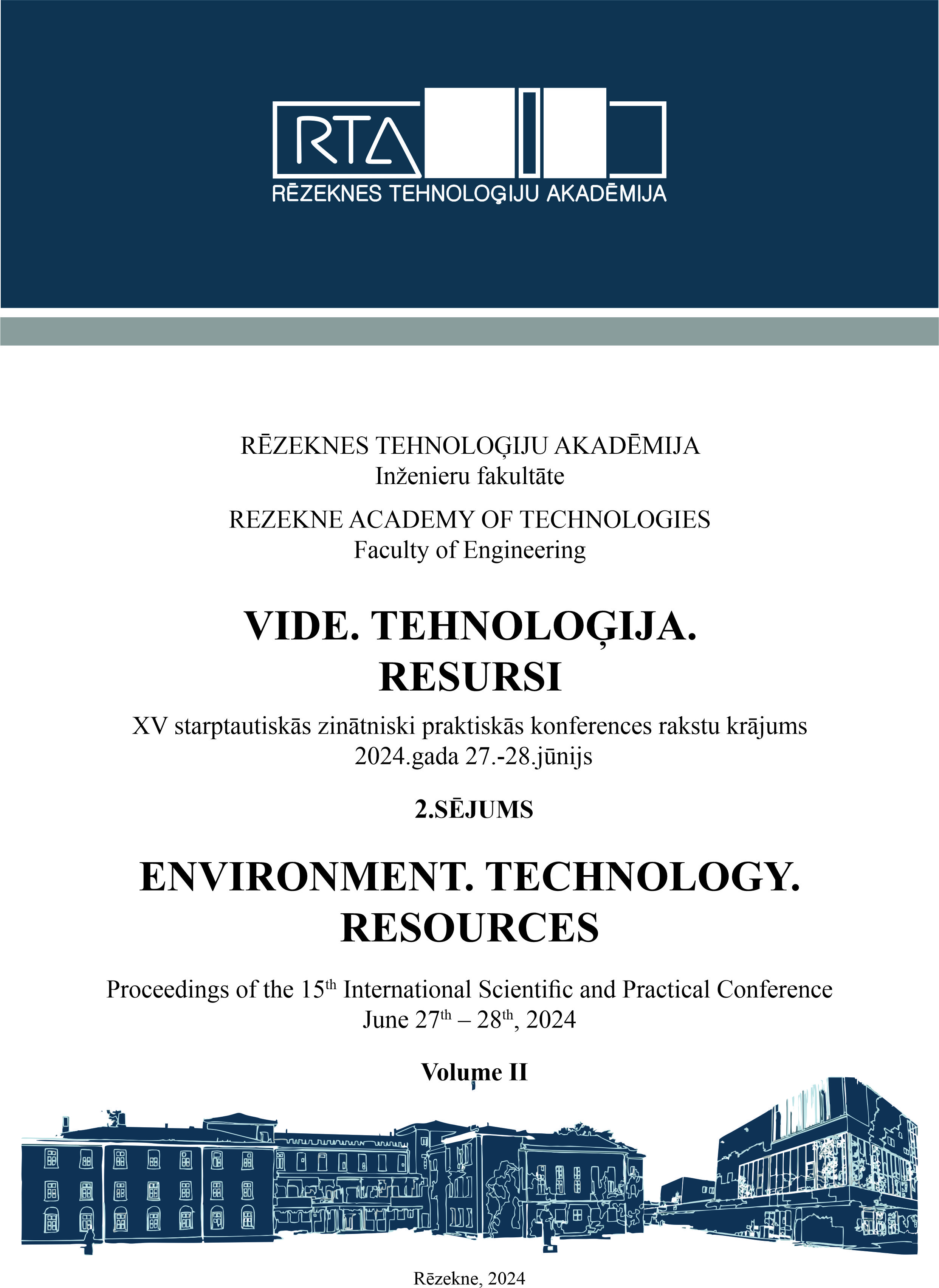RAPID DEVELOPMENT OF CHATBOT FOR TOURISM PROMOTION IN LATGALE
DOI:
https://doi.org/10.17770/etr2024vol2.8060Keywords:
chatbot, large language models, system modelling, tourismAbstract
The release of ChatGPT technology identified the large language models as a new disruptive technology, which changes the behaviours of society and its attitude towards the presence of artificial intelligence in everyday life. The tourism industry is one of the economic sectors, which will be impacted by the large language models through personalized marketing and advertisements. A common approach to capture the attention of AI-centric tourists, who want to get answers to their questions without manually researching the topic or using services of the travel advisors, is to integrate a chatbot or virtual assistant in the tourism information system. We applied this approach to the promotion of tourism in East Latvia (Latgale) by rapidly developing a chatbot by using a prompt method with context-oriented material. Two models were prepared for tourism promotion in Latgale. The models were evaluated through a pilot survey to understand the satisfaction of target users. The data analysis was applied. The study identified the importance of trustworthy information and answer saturation. The trade-off between dialog freedom and trustworthiness of answers can be achieved through the development of microservices, which are grouped as one system to direct conversation with chatbot. The appropriate conceptual models are presented in the article.
References
D. Buhalis, T. Harwood, V. Bogicevic, G. Viglia, S. Beldona, C. Hofacker, “Technological disruptions in services: lessons from tourism and hospitality,” Journal of Service Management, vol. 30, no. 4, pp. 484-506, May 2019. https://doi.org/10.1108/JOSM-12-2018-0398
K. Singha, T. Tu, J. Gottweis, R. Sayres, E. Wulczyn, L. Hou, K. Clark, S. Pfohl, H. Cole-Lewis, D. Neal, M. Schaekermann, A. Wang, M. Amin, S. Lachgar, P. Mansfield, S. Prakash, B. Green, E. Dominowska, B. Arcas, N. Tomasev, Y. Liu, R. Wong, C. Semturs, S. Mahdavi, J. Barral, D. Webster, G. Corrado, Y. Matias, S. Azizi, A. Karthikesalingam and V. Natarajan, “Towards Expert-Level Medical Question Answering with Large Language Models,” May 16, 2023. [Online]. Available https://doi.org/10.48550/arXiv.2305.09617 [Accessed Feb. 27, 2024]
P. Li, M. Zhang, P. Lin, J. Wan, and M. Jiang, “Conditional embedding pre-training language model for image captioning,” Neural Processing Letters, vol. 54, no. 6, pp. 4987–5003, 2022. https://doi.org/10.1007/s11063-022-10844-3
M. Hadi, Q. Al-Tashi, R. Qureshi, A. Shah, A. Muneer, M. Irfan, A. Zafar, M. Shaikh, N. Akhtar, J. Wu, and S. Mirjalili, “A Survey on Large Language Models: Applications, Challenges, Limitations, and Practical Usage,” July 2023. [Online] Available https://www.researchgate.net/publication/372258530_Large_Language_Models_A_Comprehensive_Survey_of_its_Applications_Challenges_Limitations_and_Future_Prospects [Accessed Feb. 27, 2024]
J. Hoffmann, S. Borgeaud, A. Mensch, E. Buchatskaya, T. Cai, E. Rutherford, D. Casas, L. Hendricks, J. Welbl, A. Clark, T. Hennigan, E. Noland, K. Millican, G. Driessche, B. Damoc, A. Guy, S. Osindero, K. Simonyan, E. Elsen, J. Rae, O. Vinyals and L. Sifre, “Training Compute-Optimal Large Language Models,” Mar 29, 2022. [Online] Available https://doi.org/10.48550/arXiv.2203.15556 [Accessed Feb. 27, 2024]
G. Trichopoulos, M. Konstantakis, G. Alexandridis, G. Caridakis, “Large Language Models as Recommendation Systems in Museums,” Electronics, vol. 12, no. 18, p. 3829, 2023. https://doi.org/10.3390/electronics12183829
Y. Tang, Z. Wang, A. Qu, Y. Yan, K. Hou, D. Zhuang, X. Guo, J. Zhao, Z. Zhao, W. Ma, “Synergizing Spatial Optimization with Large Language Models for Open-Domain Urban Itinerary Planning,” Feb. 11, 2024. [Online] https://doi.org/10.48550/arXiv.2402.07204 [Accessed Feb. 27, 2024]
M. Remountakis, K. Kotis, B. Kourtzis, G. Tsekouras, “Using ChatGPT and Persuasive Technology for Personalized Recommendation Messages in Hotel Upselling,” Information, vol. 14, p. 504, 2023. https://doi.org/10.3390/info14090504
L. Garcia, S. Aciar, R. Mendoza and J. Puello, “Smart Tourism Platform Based on Microservice Architecture and Recommender Services,” In: International Conference on Mobile Web and Intelligent Information Systems, Jul. 14, 2018, pp 167–180 [Online]. https://doi.org/10.1007/978-3-319-97163-6
N. Yoshimaru, M. Okuma, T. Iio and K. Hatano, “AsyncMLD: Asynchronous Multi-LLM Framework for Dialogue Recommendation System,” Dec 21, 2023. [Online] Available https://doi.org/10.48550/arXiv.2312.13925 [Accessed Feb 27, 2024]
N. Yoshimaru, M. Okuma, T. Iio and K. Hatano, “AsyncMLD: Asynchronous Multi-LLM Framework for Dialogue Recommendation System”, Dec 21, 2023. [Online] Available https://doi.org/10.48550/arXiv.2308.08155 [Accessed Feb 27, 2024
Downloads
Published
Issue
Section
License
Copyright (c) 2024 Sergejs Kodors, Guna Kanepe, Daniēls Zeps, Imants Zarembo, Lienīte Litavniece

This work is licensed under a Creative Commons Attribution 4.0 International License.



